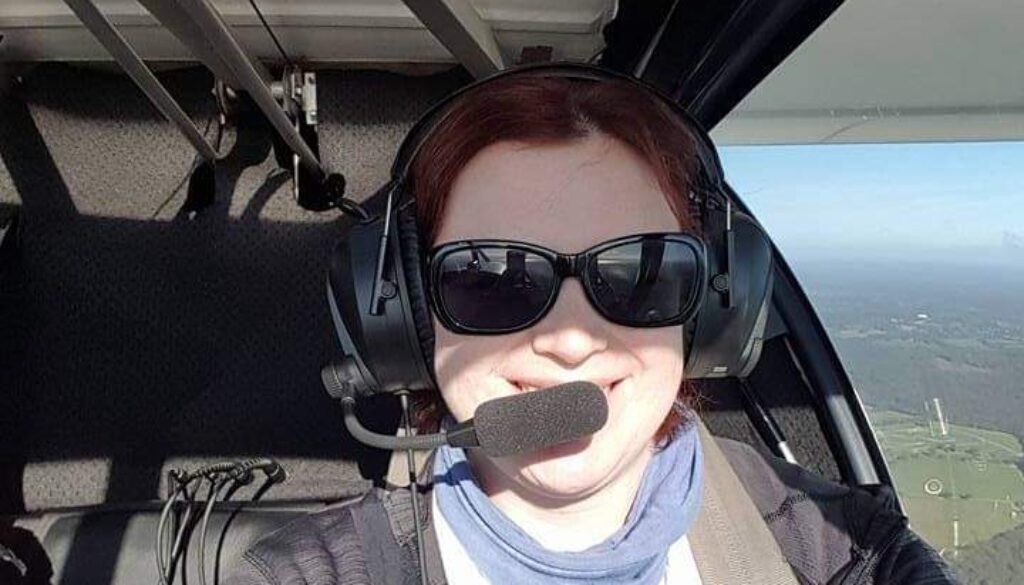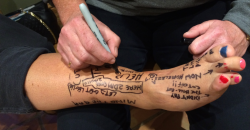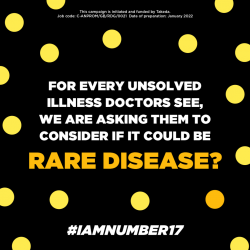Breaking the Medical Preconception on Rare Diseases by Rebecca Giddings
Many people with a rare disease will tell you that it took years to get diagnosed, with an average time for diagnosis taking between 4 and 6 years. During this time people will see multiple doctors and their experience of the medical world ranges from a few bad experiences to be gaslighted by doctors and having medical PTSD.
My personal experience was actually quite a short time to diagnosis, it took 2 years. During that time, at one point I had; a cardiologist, a professor of cardiovascular surgery, a professor of cardiovascular sciences, a neurologist, a rheumatologist, a gastroenterologist, a number of orthopaedic surgeons, a doctor of nuclear medicine, a pain management consultant and a partridge in a pear tree. I averaged about 3 hospital appointments a week, which is hard work when you are not feeling well and fighting for a diagnosis and believe me – it is a fight.
I was very lucky and got on with most of my doctors but that doesn’t mean there wasn’t the occasional frustration. Each rare disease seems to come with a sub set of common phrases that people hear. I have Ehlers Danlos Syndrome (EDS) and this means I still see a wide variety of medical professionals at a number of different hospitals, most of these are a small team that I have worked with for years. Occasionally though I have to see someone new and I am very used to the medical world not knowing what EDS is or saying they vaguely remember a lecture about it in med school but have never seen a case. Often these revelations are accompanied with comments such as; ‘that means you are really flexible doesn’t it?’ or my personal favourite ‘Oh, so you are double jointed’. Honestly, at the point I hear ‘double jointed’ I am already disengaging from the conversation and working out where I go for a second opinion.

EDS is a group of genetic connective tissue disorders, there are currently 13 types of EDS (based on the 2017 International Diagnostic Criteria) depending on the specific gene mutation. As connective tissue can be found all over the body it means that EDS is a systemic condition, which means it can impact every part of the body. Similar to many conditions, EDS is different for different people and the symptoms range from very mild to life limiting. For me, EDS means that all of my joints sublux and dislocate, my stomach is paralysed so I am fed through a jejunostomy tube, my bladder has been removed and I have a urostomy, my spine is hyper-flexible causing fractures in the vertebrae, thoracic scoliosis and spondylolisthesis, I have prinzmetals angina, autonomic dysfunction, Raynaud’s. To be honest, that list could go on and on, to date I have had 47 surgeries and I am running out of internal organs that can safely be removed. The type of EDS I have is hEDS with vEDS crossover. To break another preconceived idea, even with all of that going on, I managed to finish my doctorate, my graduation was 4 weeks after the cystectomy and my goal was to not only attend but to walk on stage and receive my certificate – which I did. I ride a motorbike, my bike is adapted so that I can ride it without having to use my left side (peripheral nerve damage in my left hand and foot) and I can sometimes be found flying small planes!
What’s the Answer?
It is fantastic when I come across someone who knows what EDS is, however, I don’t expect all medics to know everything. What I do expect is to not be on the receiving end of flippant remarks or guesses about my condition. So, what is the answer, personally I think it is quite simple. Firstly, many times the patient with a rare condition is the expert on their condition, after all they live with it, day in and day out.
Secondly, its ok to not know, personally, if a doctor said to me, something along the lines of, ‘that’s an unusual condition and not one I see every day, can you tell me how it affects you?’, I would happily talk them through how EDS affects me and impacts my life. I come from a legal background where it is entirely acceptable to state that you need to go away and do some research on a subject. Therefore when a doctor tells me that they need to do some research or want to take my case to their MDT, I have a lot of respect for that, after all, they are human and don’t know everything.




